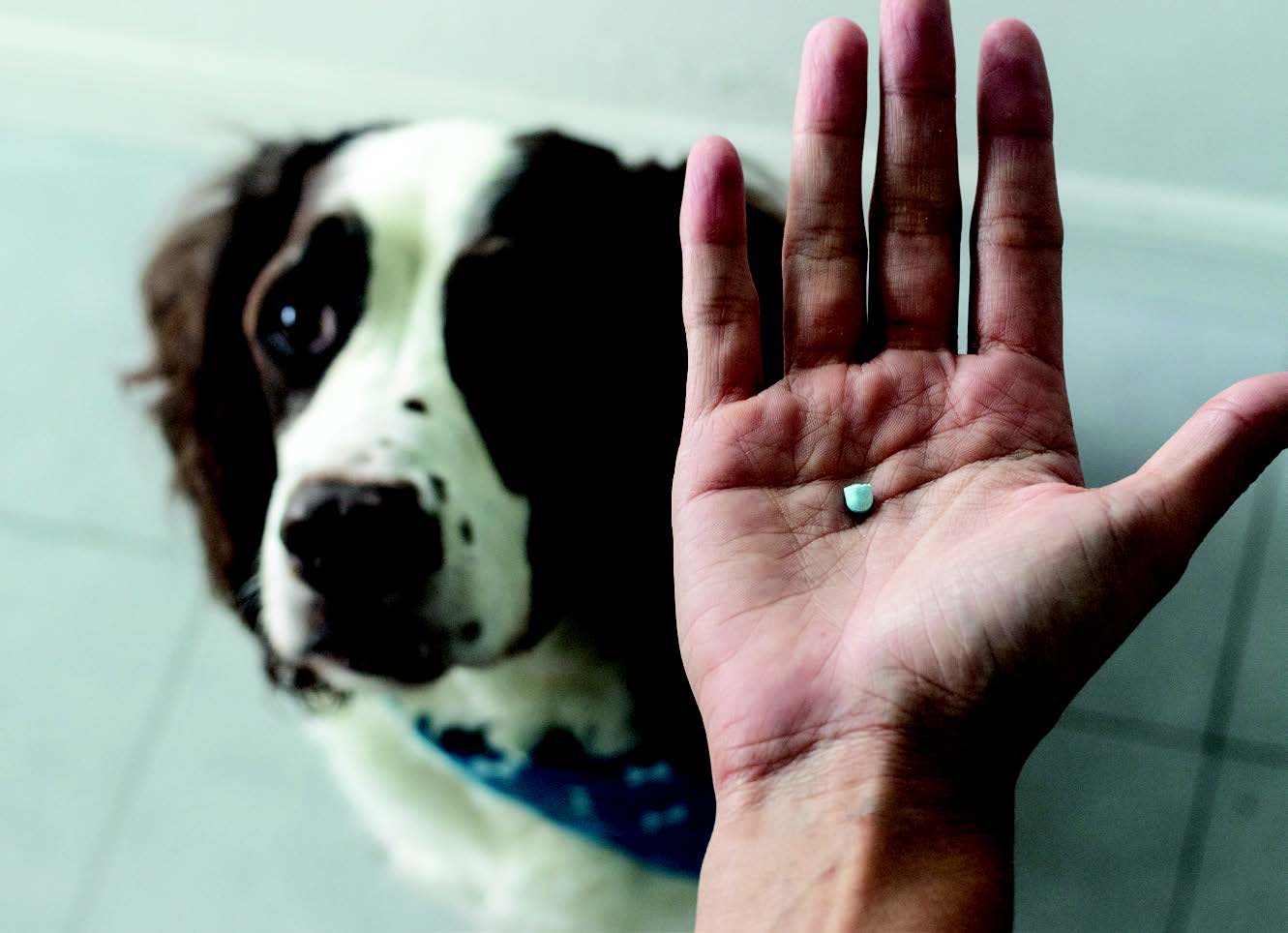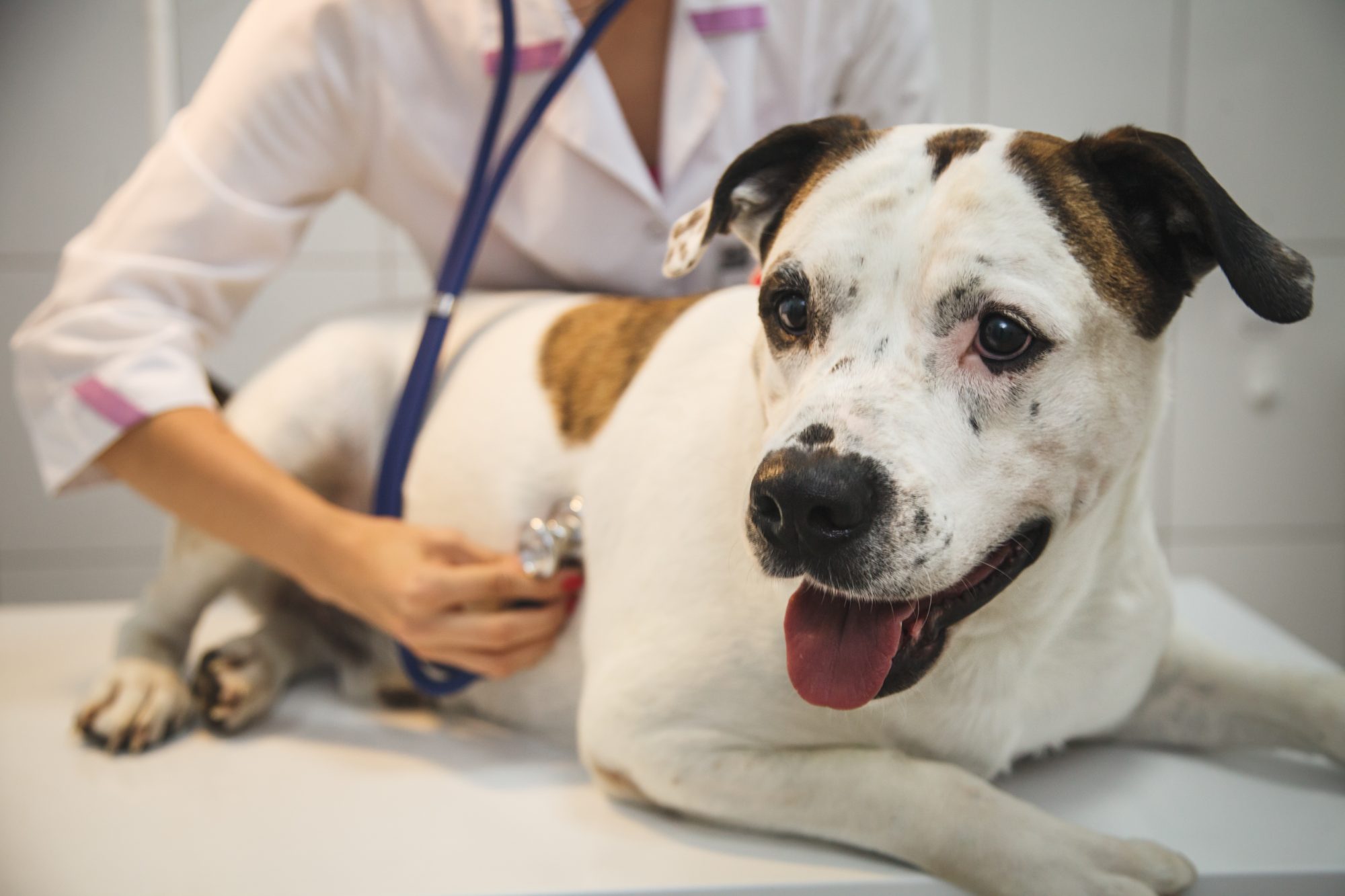Home>Health & Wellness>Common Health Issues>Heart Health>What To Do If You Can’t Afford Heartworm Treatment For Your Dog?


Heart Health
What To Do If You Can’t Afford Heartworm Treatment For Your Dog?
Modified: February 21, 2024
If you're struggling to afford heartworm treatment for your dog, learn about affordable options and preventive measures for maintaining your pet's heart health.
(Many of the links in this article redirect to a specific reviewed product. Your purchase of these products through affiliate links helps to generate commission for Pawsomeoldies.com, at no extra cost. Learn more)
Table of Contents
Introduction
Heartworm disease is a serious and potentially fatal condition that can affect our beloved canine companions. It is caused by parasitic worms that are transmitted through the bites of infected mosquitoes. These worms can grow and multiply within a dog's body, leading to severe damage to the heart, lungs, and blood vessels. The treatment for heartworm disease can be costly, often posing a significant financial burden for pet owners. In such challenging circumstances, it's crucial to explore various options and resources to ensure that our furry friends receive the necessary care and treatment.
As responsible pet owners, we strive to provide the best possible care for our dogs, including preventive measures to safeguard their health. However, despite our best efforts, unforeseen circumstances such as financial constraints can arise, making it difficult to afford the treatment for heartworm disease. In such situations, it's essential to seek out alternative solutions and assistance to address this pressing concern.
In the following sections, we will delve into the complexities of heartworm disease, explore potential avenues for financial assistance, discuss fundraising and donation options, and consider do-it-yourself (DIY) treatment alternatives. By gaining a comprehensive understanding of these options, pet owners can make informed decisions and take proactive steps to ensure the well-being of their canine companions, even in the face of financial challenges. Let's embark on this journey to explore the possibilities and resources available to support dogs in need of heartworm treatment.
Understanding Heartworm Disease
Heartworm disease is a potentially life-threatening condition that primarily affects dogs but can also occur in other mammal species, including cats, wolves, foxes, and even ferrets. This disease is caused by a parasitic worm known as Dirofilaria immitis, which is transmitted through the bites of infected mosquitoes. When an infected mosquito bites a dog, it transfers microscopic heartworm larvae into the animal's bloodstream. Over time, these larvae mature into large worms that can reach up to 12 inches in length and reside within the heart, lungs, and blood vessels of the affected animal.
The presence of these worms can lead to severe damage to the cardiovascular and respiratory systems, causing symptoms such as coughing, lethargy, difficulty breathing, and in advanced cases, heart failure. If left untreated, heartworm disease can be fatal for dogs, making it essential to address the condition promptly and effectively.
Preventing heartworm disease is crucial, as treatment can be complex, lengthy, and costly. Additionally, the potential complications and risks associated with treatment further emphasize the importance of proactive prevention. This includes the regular administration of preventive medications, such as monthly heartworm preventives, as recommended by veterinarians.
Diagnosing heartworm disease typically involves a combination of blood tests, X-rays, and ultrasound examinations to detect the presence of heartworms and assess the extent of the infection. Once diagnosed, treatment may involve a multi-step approach, including medication to kill the adult worms, as well as supportive care to manage potential complications and aid in the dog's recovery.
Understanding the transmission, symptoms, diagnosis, and treatment of heartworm disease is crucial for pet owners to recognize the significance of preventive measures and the potential consequences of untreated infections. By staying informed about this disease, pet owners can take proactive steps to protect their furry companions and seek timely veterinary care to address any concerns related to heartworm disease.
Options for Financial Assistance
When faced with the financial challenges of treating heartworm disease in dogs, pet owners can explore various avenues to seek assistance and support. Understanding the potential options for financial aid can alleviate the burden and ensure that dogs receive the necessary treatment. Here are several avenues to consider:
-
Veterinary Payment Plans: Some veterinary clinics offer payment plans or financing options to help pet owners manage the costs of heartworm treatment. These arrangements allow for the spreading of expenses over time, making it more feasible for individuals facing financial constraints.
-
Nonprofit Organizations: There are nonprofit organizations and animal welfare groups dedicated to providing financial assistance for veterinary care, including heartworm treatment. These organizations may offer grants, subsidies, or low-cost treatment options for eligible pet owners, helping to alleviate the financial burden associated with heartworm disease treatment.
-
Community Assistance Programs: Local animal shelters, rescue groups, and community organizations may have programs in place to assist pet owners in need. These programs can provide financial support, discounted veterinary services, or access to resources for obtaining affordable heartworm medication and treatment.
-
Financial Aid Funds: Some veterinary hospitals and charitable foundations maintain funds specifically designated to assist pet owners with the costs of veterinary care, including heartworm treatment. These funds may be accessible through application processes, and they serve as valuable resources for individuals seeking financial assistance.
-
Pet Insurance: For pet owners with existing pet insurance coverage, it's essential to review the policy to determine if heartworm treatment is included. Depending on the policy, pet insurance may help offset a portion of the treatment expenses, reducing the financial burden on the pet owner.
-
Crowdfunding Platforms: In today's digital age, crowdfunding platforms can be utilized to raise funds for a dog's heartworm treatment. Pet owners can create campaigns to share their pet's story and seek financial support from friends, family, and compassionate individuals who are willing to contribute to the cause.
By exploring these options for financial assistance, pet owners can access valuable resources and support to address the costs associated with heartworm treatment for their dogs. It's important to research and inquire about these avenues to determine the eligibility criteria and available assistance, ensuring that dogs receive the care they need, regardless of financial constraints.
Fundraising and Donations
In the face of financial challenges associated with heartworm treatment for dogs, fundraising and seeking donations can serve as powerful avenues to garner support and alleviate the burden on pet owners. The compassionate nature of communities, both local and online, can be harnessed to rally support for dogs in need of heartworm treatment.
Fundraising efforts can take various forms, ranging from organizing events such as dog walks, bake sales, or pet-themed gatherings to engaging in online campaigns through social media platforms and crowdfunding websites. These initiatives provide opportunities to raise awareness about heartworm disease, share personal stories of affected dogs, and appeal to the generosity of individuals who are passionate about animal welfare.
When organizing fundraising events, creativity and community involvement play pivotal roles in driving the success of the initiatives. Engaging local businesses, veterinary clinics, and pet-related establishments can foster partnerships and garner support through sponsorships, donations, or in-kind contributions for the events. Additionally, leveraging social media platforms and local media outlets can amplify the reach of fundraising efforts, attracting a broader audience and generating greater support for the cause.
In the realm of online fundraising, platforms such as GoFundMe, Kickstarter, or YouCaring provide accessible channels for pet owners to create compelling campaigns that resonate with potential donors. These campaigns can feature heartwarming stories, captivating images, and informative updates about the affected dogs, compelling individuals to contribute to the cause and make a meaningful difference in the lives of these beloved pets.
Donations, whether monetary or in the form of essential supplies, can significantly alleviate the financial strain on pet owners seeking heartworm treatment for their dogs. Local animal shelters, rescue organizations, and veterinary clinics may accept donations earmarked for specific cases, directing the support toward covering the costs of heartworm medication, veterinary care, and related expenses.
Furthermore, fostering a sense of community and empathy can inspire individuals to contribute to the well-being of dogs in need, fostering a collective effort to support pet owners facing financial constraints. By harnessing the power of fundraising and donations, pet owners can access vital resources and financial assistance, ensuring that their dogs receive the necessary treatment for heartworm disease.
In essence, fundraising and donations serve as impactful mechanisms to rally support, raise funds, and alleviate the financial burden associated with heartworm treatment for dogs. These initiatives embody the spirit of compassion and solidarity within communities, offering hope and assistance to pet owners navigating the challenges of addressing heartworm disease in their beloved canine companions.
DIY Treatment Options
When faced with financial constraints in seeking professional veterinary treatment for heartworm disease in dogs, pet owners may consider exploring DIY (do-it-yourself) treatment options. It's important to note that DIY approaches should be approached with caution and under the guidance of a qualified veterinarian. While professional veterinary care is the recommended course of action for addressing heartworm disease, certain DIY strategies may offer supplementary support and relief for affected dogs.
-
Natural Remedies: Some pet owners may explore natural remedies and supplements that are purported to support heart health and immune function in dogs. These may include herbal supplements, such as garlic and turmeric, which are believed to possess potential benefits for cardiovascular health. However, it's crucial to consult with a veterinarian before administering any natural remedies, as certain substances may interact with existing medications or pose risks to the dog's well-being.
-
Dietary Modifications: A balanced and nutritious diet is essential for supporting a dog's overall health, including cardiovascular wellness. Pet owners can work with veterinarians to develop dietary plans that prioritize heart health, incorporating high-quality protein sources, essential fatty acids, and antioxidant-rich ingredients. Additionally, dietary modifications may involve reducing sodium intake, which can benefit dogs with heart conditions.
-
Exercise and Stress Management: Regular, moderate exercise can contribute to overall cardiovascular fitness and well-being in dogs. Engaging in low-impact activities, such as gentle walks and supervised play, can promote circulation and support heart health. Furthermore, managing stress and providing a calm, nurturing environment can positively impact a dog's overall wellness, potentially complementing professional treatment efforts.
-
Supplemental Support: In some cases, veterinarians may recommend specific supplements to support heart health and address potential deficiencies. These supplements may include omega-3 fatty acids, Coenzyme Q10, and other targeted formulations designed to promote cardiovascular function. However, it's imperative to seek professional guidance to ensure the safe and appropriate use of supplements for dogs with heartworm disease.
-
Monitoring and Symptom Management: Pet owners can play a crucial role in monitoring their dog's condition and promptly addressing any concerning symptoms. This involves observing changes in behavior, appetite, and energy levels, as well as staying vigilant for signs of respiratory distress or exercise intolerance. By maintaining close communication with veterinarians, pet owners can actively participate in symptom management and provide valuable insights into their dog's well-being.
It's important to emphasize that DIY treatment options should not serve as substitutes for professional veterinary care when addressing heartworm disease in dogs. While these supplementary approaches may offer supportive benefits, they should be integrated into a comprehensive treatment plan developed in collaboration with qualified veterinarians. By prioritizing the well-being of their canine companions and seeking professional guidance, pet owners can navigate the complexities of heartworm disease with diligence and care.
Conclusion
In the realm of pet care, the well-being of our canine companions holds profound significance, and addressing the challenges of heartworm disease in dogs requires a multifaceted approach. As we navigate the complexities of this condition, it becomes evident that financial constraints should not serve as insurmountable barriers to accessing essential treatment for our beloved pets.
The journey of exploring options for financial assistance, fundraising, and DIY treatment alternatives underscores the resilience and compassion of pet owners in advocating for the health of their dogs. By delving into these avenues, individuals can discover a spectrum of resources and support systems that extend beyond financial limitations, offering hope and possibilities for addressing heartworm disease.
The pursuit of financial assistance, whether through veterinary payment plans, nonprofit organizations, community programs, or pet insurance, empowers pet owners to seek the necessary care for their dogs, fostering a sense of relief and assurance amid challenging circumstances. Additionally, the collaborative efforts of fundraising and donations exemplify the interconnectedness of communities, as individuals unite to make a meaningful impact in the lives of dogs in need.
Furthermore, the consideration of DIY treatment options serves as a testament to the dedication and resourcefulness of pet owners, highlighting their commitment to exploring supplementary avenues for supporting their dogs' well-being. While DIY approaches should be approached with caution and professional guidance, they reflect the unwavering determination of pet owners to navigate the complexities of heartworm disease with diligence and care.
In essence, the journey of addressing heartworm disease in dogs transcends financial constraints, encompassing a tapestry of compassion, resilience, and proactive advocacy. By embracing a holistic approach that integrates financial assistance, community support, and informed decision-making, pet owners can navigate the challenges of heartworm disease with unwavering dedication and a steadfast commitment to the well-being of their canine companions.
As we conclude this exploration, it becomes evident that the bond between humans and dogs transcends financial limitations, embodying a profound connection rooted in empathy, compassion, and unwavering devotion. Through the collective efforts of individuals, communities, and veterinary professionals, we can strive to ensure that every dog receives the care and treatment they deserve, fostering a world where the well-being of our beloved pets knows no bounds.














